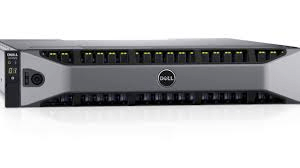The world of managing your data is fast evolving. Small businesses are often at a crossroads when choosing between cloud storage and onsite storage. Understanding the nuances of each option – including virtual, hybrid, and on-premises solutions – is crucial in making an informed decision. Let's dive into the world of digital storage and discover which option aligns best with your business needs.
Cloud Storage: The Virtual Revolution
Accessibility and Flexibility:
Cloud storage, provided by leading innovators like Cyber Advisors, offers a virtual storage solution accessible from anywhere in the world. This flexibility is ideal for businesses with remote teams or those requiring frequent access to data offsite.
Security is another crucial aspect to consider when it comes to data storage. With cloud storage, leading providers like Cyber Advisors offer advanced security features to protect your sensitive data against cyber threats. They employ robust encryption methods and implement strict security protocols to ensure that your data is safe and secure. Additionally, regular backups are performed to ensure that your data is protected in the event of a system failure or data loss. This level of security and recovery measures gives you peace of mind, knowing that your data is in good hands.
Scalability and Cost Efficiency:
Small businesses benefit from the scalability of cloud storage, paying only for the space they use. This model eliminates the high upfront costs associated with physical storage solutions. In addition to cost savings, scalability allows small businesses to easily adjust their storage capacity as their needs grow. Whether you need to expand your storage space to accommodate new data or downsize to reduce costs, cloud storage offers the flexibility to do so seamlessly.
With cloud storage, small businesses no longer need to invest in expensive hardware or worry about maintenance and upgrades. The burden of managing physical storage infrastructure is lifted, allowing businesses to focus their resources on core operations and growth. This not only saves money but also frees up valuable time and resources that can be allocated to other critical aspects of the business.
Furthermore, cloud storage offers small businesses the ability to easily collaborate and share data with team members and clients. With a few clicks, employees can access and collaborate on files in real-time, regardless of their location. This level of accessibility and flexibility enhances productivity and efficiency, enabling small businesses to compete on a global scale.
Security and Recovery:
Cloud storage providers often offer advanced security features and regular backups. This is crucial for protecting sensitive data against cyber threats and ensuring business continuity. In today's digital landscape, where cyberattacks and data breaches are becoming increasingly common, businesses cannot afford to overlook the importance of robust security measures. With cloud storage, providers like Cyber Advisors prioritize the protection of your data by implementing stringent security protocols.
Leading cloud storage providers employ state-of-the-art encryption methods to safeguard your sensitive information. This ensures that even if unauthorized individuals gain access to your data, they will not be able to decipher or exploit it. Additionally, regular backups are performed to create multiple copies of your data, minimizing the risk of permanent loss in the event of a system failure or data corruption.
By entrusting your data to a reputable cloud storage provider, you can rest assured that your valuable information is in safe hands. These providers invest heavily in security infrastructure and employ teams of experts who constantly monitor and update their systems to stay ahead of emerging threats. This level of security expertise and proactive monitoring allows businesses to focus on their core operations without the constant worry of data breaches or unauthorized access.
Furthermore, cloud storage providers understand the importance of business continuity. They prioritize the availability of your data and ensure that it is accessible at all times, even in the face of unexpected disruptions. By implementing redundancy measures and backup systems, these providers minimize downtime and ensure that your business can continue operating seamlessly, even during unforeseen events.
Choosing a cloud storage provider that offers advanced security features and regular backups is crucial for small businesses looking to protect their sensitive data and ensure uninterrupted operations. By leveraging the expertise and resources of these providers, businesses can navigate the complex world of data security with confidence and focus on their growth and success.
Ready to learn more
about data storage?
Contact Us
Onsite Storage: The On-Premises Approach
Complete Control:
Onsite or on-premises storage gives businesses full control over their data storage, an appealing factor for those with highly sensitive data or specific regulatory compliance requirements.
-
Data Sovereignty: With onsite storage, data remains within the physical confines of your business, ensuring compliance with local data protection laws and industry-specific regulations. For instance, sectors like healthcare and finance often have stringent rules about where and how data is stored.
-
Customization and Management: Onsite solutions allow you to tailor the storage infrastructure to your specific needs. Whether it's configuring the network for optimal performance or setting up bespoke security protocols, you have the autonomy to manage your data environment in a way that cloud storage doesn't always allow.
-
Immediate Response to Issues: In the event of a technical glitch or a security threat, having onsite storage means you can react immediately. This direct access to hardware and data can be crucial in mitigating risks and resolving issues swiftly.
Performance and Speed:
With data stored locally, businesses experience faster data retrieval times, essential for operations requiring immediate access to large volumes of data.
-
High-Speed Access: Data retrieval and saving are significantly faster as the data does not have to traverse the internet. This is particularly beneficial for applications requiring large data throughput or low latency, such as high-resolution video editing, large-scale analytics, or real-time financial trading platforms.
-
Network Reliability: Reliance on external network connections is minimized, which can be a boon in areas with unstable internet connectivity. By reducing dependency on external networks, businesses avoid potential downtimes and bandwidth issues associated with cloud storage.
-
Predictable Performance: Since the storage resources are not shared with others, as is often the case with cloud storage, businesses benefit from consistent and predictable performance. This reliability is essential for critical business operations that require steady data access.
Long-Term Investment:
While the initial investment in hardware can be significant, onsite storage can be cost-effective in the long run, especially for businesses with stable data storage needs.
-
Capital Expenditure vs. Operational Expenditure: Onsite storage involves upfront capital expenditure for hardware and infrastructure. However, unlike cloud storage's recurring operational costs, once the initial investment is made in onsite storage, the ongoing expenses can be lower, especially as hardware costs continue to decrease.
-
No Dependency on Subscription Models: With onsite storage, you're not tied to the fluctuating pricing models of cloud services. This can be particularly advantageous in times of economic uncertainty or when managing long-term budgets.
-
Long-Term Asset: Investing in onsite storage infrastructure adds a tangible asset to your company's portfolio. This can be beneficial for the overall valuation of your business and can offer depreciation benefits.
Need some help with
hybridstorage?
Get in touch
Hybrid Solutions: Best of Both Worlds
Flexibility and Security:
Hybrid solutions combine the accessibility of cloud storage with the security of onsite storage. This is ideal for businesses that need to store sensitive data securely onsite while leveraging the cloud for less critical data.
Customizable to Business Needs:
Hybrid storage can be tailored to the specific needs of a business, offering a balance between cost, performance, and security.
Still Unsure About What To Do?
The choice between cloud storage, onsite storage, and hybrid solutions depends on various factors such as your business size, budget, data access needs, and security requirements. For small businesses, each option presents its unique advantages. Cyber Advisors, with expertise in managed IT and security, can help guide you in choosing the most suitable storage solution, whether it be cloud-based solutions from Dell and Fortinet, or a custom hybrid approach. Embrace the future of data storage by selecting a solution that propels your business towards growth and efficiency.





